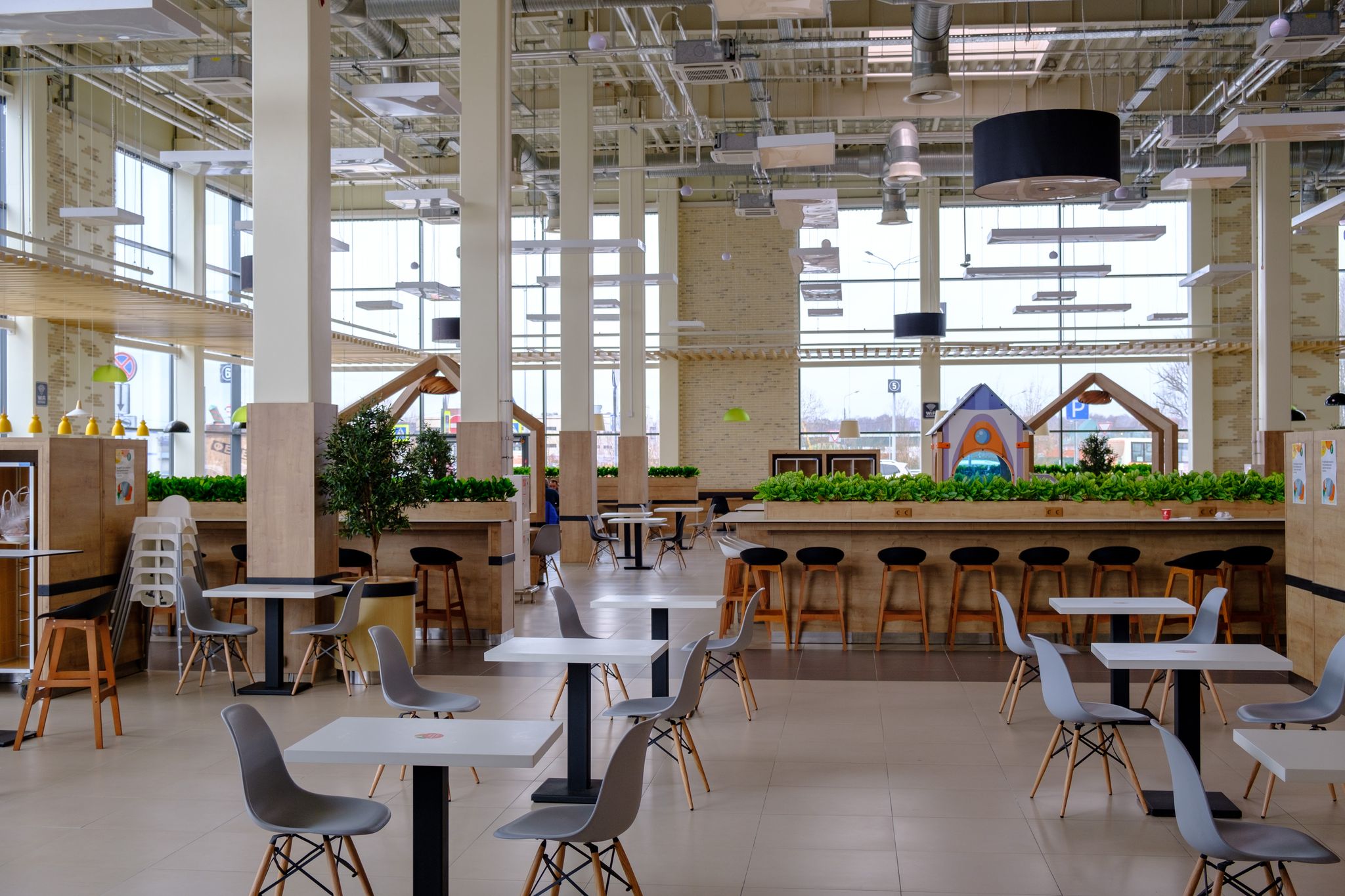Globus Kommunarka - raising the bar for Russian green builders
Project Details
- Scheme: 2016 New Construction: Commercial
- Stage: Final
- Score: 58.2%
- Rating: Very Good
- Stage/Valid until: Final
Project Team
- Client- Globus
- Contractor- European Construction Technologies
- Assessor organisation- Eco Sovetnik
About the Building
The Globus hypermarket chain is located in a developing area of New Moscow, in a new residential neighbourhood. The hypermarket has a total area of almost 26 thousand square meters & has its own restaurant, convenience store, dry cleaning shop, pharmacy and, communication centre.
The new facility aligns with the current trend to create small but multifunctional shopping malls with a variety of services available. The hhypermarket expects to welcome 5 million visitors per year.
The first GLOBUS store was built in 1828 in Germany. In 2006 the first hypermarket in Russia was opened and fast-paced expansion strategy had been employed. Today HYPERGLOBUS has 18 hypermarkets in its Russian portfolio. In 2017, the first GLOBUS store was certified to BREEAM, achieving a ‘Good’. The learning from this certification has contributed to a strong bank of knowledge and experience in sustainable building practices which HYPERGLOBUS had embedded in its further buildings. The latest 2 projects – the logistic center in Pushkino and a hypermarket in Kommunarka- have been both certified to BREEAM excellent.
These ratings are currently the highest among the company’s certified facilities in Russia. The company’s environmental policy now includes a requirement to certify all new facilities to BREEAM standard.

Environmental Challenges and Green strategy
HYPERGLOBUS LLC has an internal social responsibility programme called “Living Consciously”. The program stands on 3 pillars – caring for People (including helping local communities in the regions where the company operates, supporting and establishing long-term relations with non-for profit organizations, commitment to corporate volunteering), caring for Nature (the hypermarkets are built in accordance with BREEAM requirements, energy and water saving processes are in place, waste reduction, support of responsible local business), caring for health and wellbeing (development of own healthy products brands; promoting healthy lifestyle and the organic food industry). This programme helps to establish strategic goals and approach for the company, however its implementation during construction process is further stipulated through BREEAM certifications.

How has the BREEAM assessment benefited the project?
BREEAM certification has provided the opportunity to update engineering systems and implement innovative sustainability strategies, therefore reducing the buildings environmental footprint.
The energy efficiency strategy features that were implemented thanks to BREEAM certification were;
- Automatic lighting control through the BMS system (according to a configurable schedule) for different functional areas (mall, restaurant, shopping areas, checkout area, office area, entrances) throughout the building
- 100% LED lighting indoors and outdoors, use of light / motion sensors for lighting control (mall / restaurant / dry storages) to improve efficiency of use of light
- Connection of frequency converters of mains pumps in boiler room to pressure sensor in heating system
- Use of building envelope with increased high energy efficiency category
- Maximizing natural light for these type of building – glazing in sales areas limited to cash desks and ribbon glazing in a storage areas, natural lights in the office and production areas (where possible)
- Use of waste heat from refrigeration units to pre-heat water
- The most advanced energy and water metering system helps not only to segregate knowledge on various types of energy use (ventilation, lighting, production, cooling, heating, pumps, etc.) for the building but also compares energy and water use for different assets of the company in the main office. Energy and water monitoring helps not only to improve efficiency of the building but to manage systems proactively and reduce production costs.
Waste
The maximum available rating was achieved for this category. During construction, recycled crushed stone was used (transported from a location with a distance of 28 km from the construction site) and only 5% of the waste was sent to the landfill. The rest of the waste was sent for recycling.
Transport
The maximum available rating was achieved for this category. As a result of negotiations with local transportation companies, an additional public transportation route was organized to the Hypermarket. Moreover, bicycle parking lots were installed for visitors and employees, as well as charging stations for electric cars.
Water
The maximum available rating was achieved for this category. Energy-saving plumbing has been installed, and a leakage control system is used.
Health and Wellbeing
A comfortable environment has been created for users and employees, considering those with low mobility and people of different ages. The Hypermarket has an inclusive design and has provided a sufficient number of recreational areas.
For Hyperglobus compliance with the BREEAM standard helps to reduce impact on the environment, ensures significant savings in resource consumption and guarantees the long-term efficiency of the building’s operation. In particular, the facility uses LED lighting that significantly reduces energy costs, aerators for water saving and carbon dioxide refrigeration systems on global warming. In addition, Hyperglobus sorts waste at all stages of production, and accepts used bulbs and batteries from the public for recycling
-Martin Hubmann, director of the territorial planning and construction of the Globus hypermarkets’ chain

